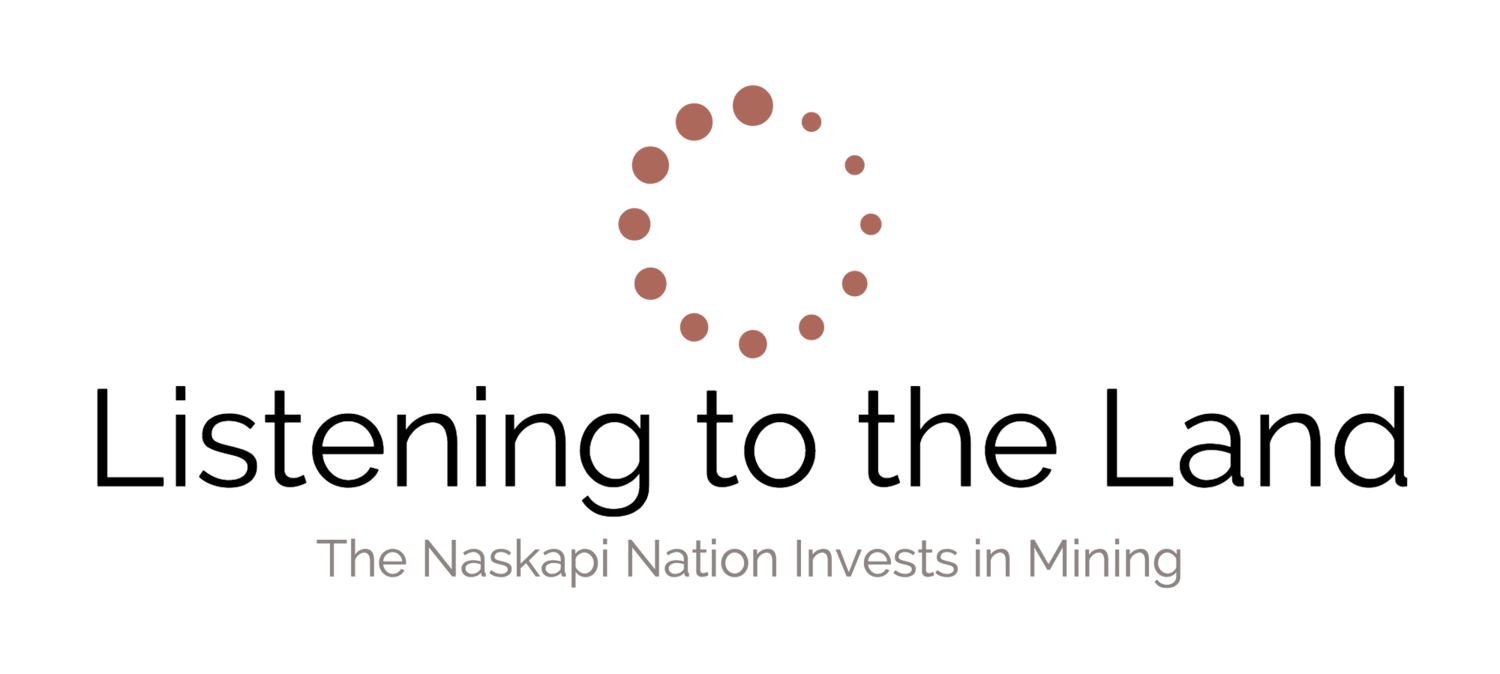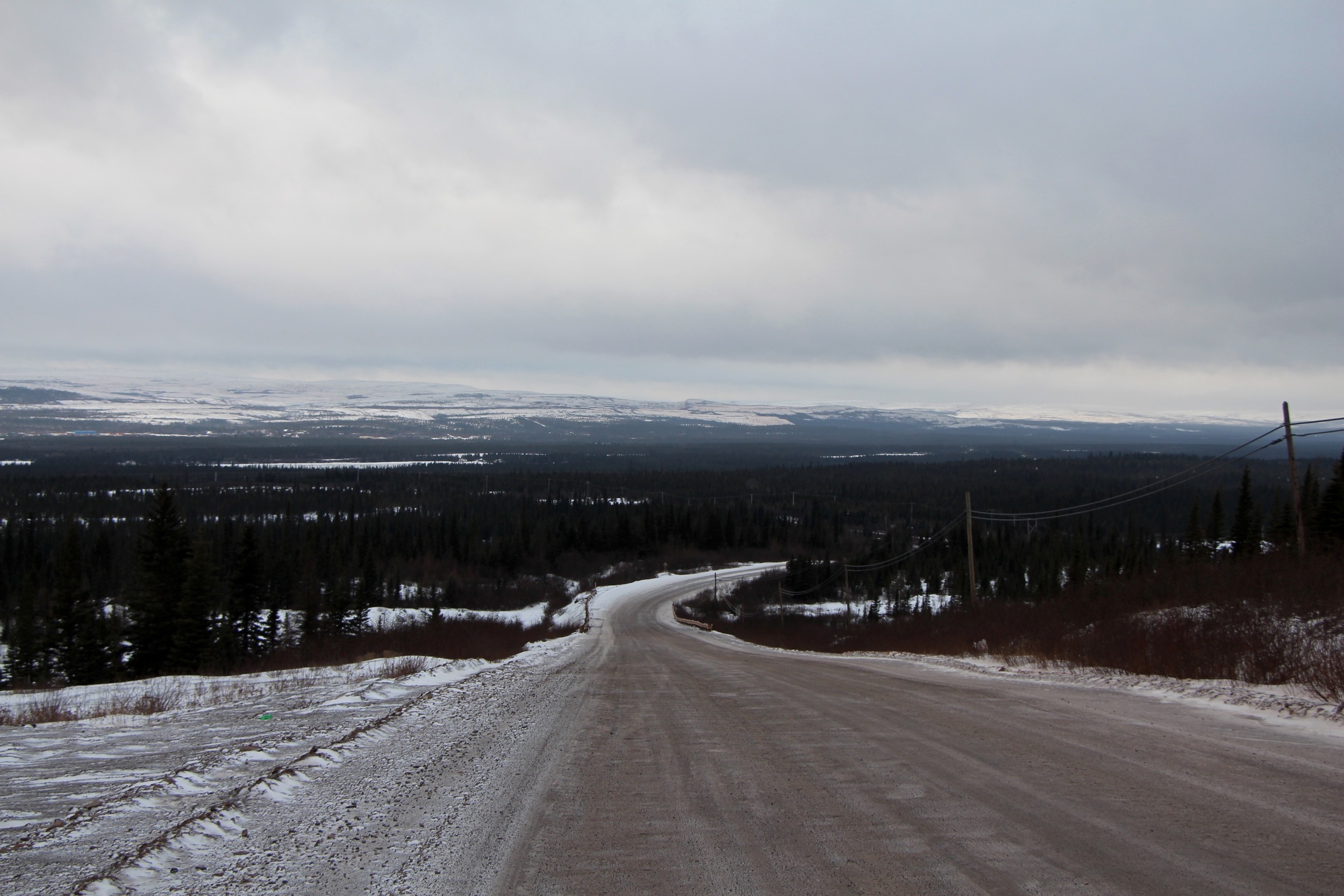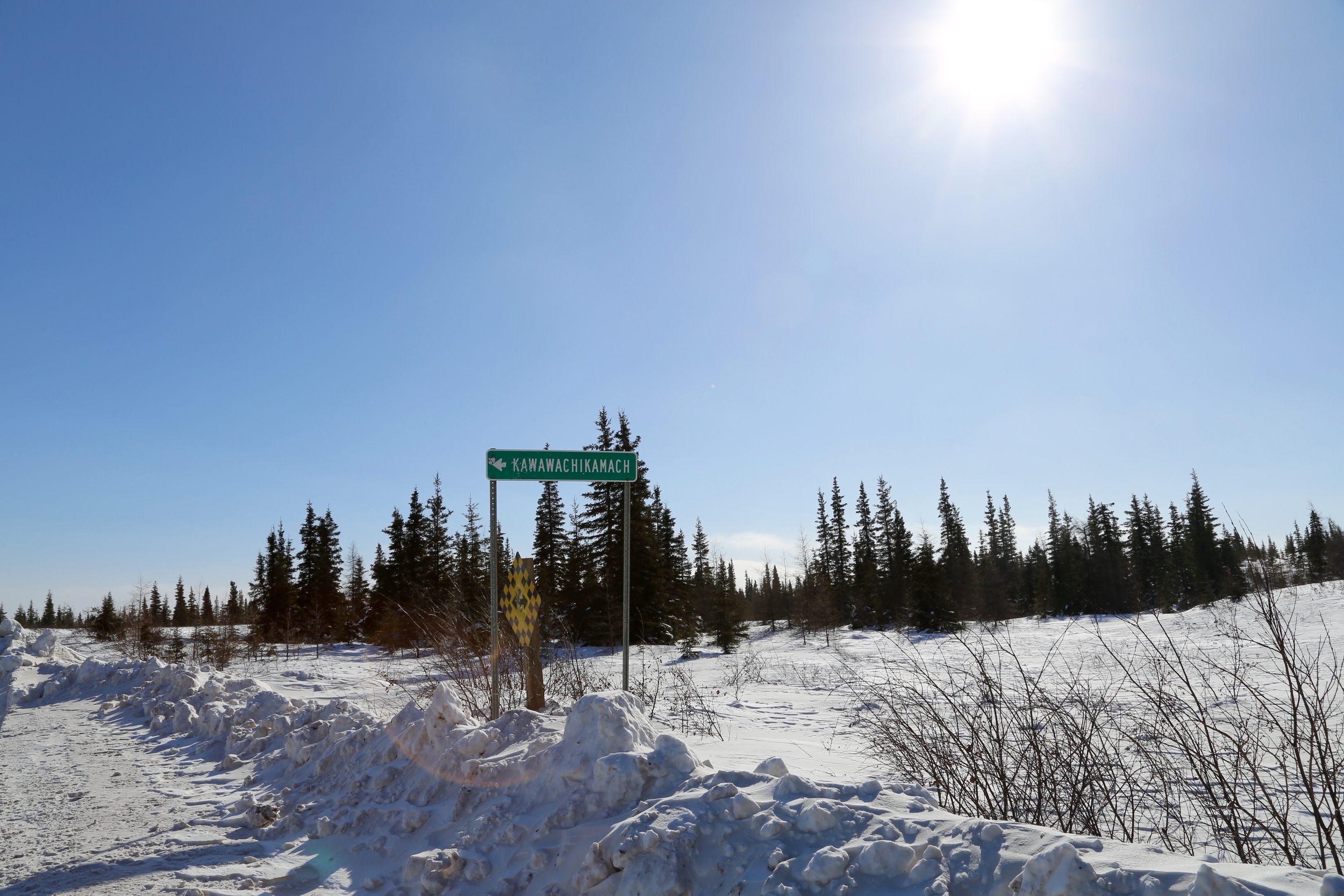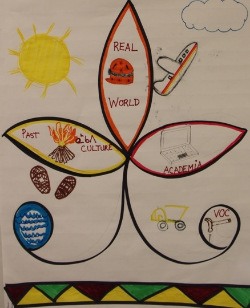LISTENING TO THE LAND: THE NASKAPI NATION INVESTS IN MINING
How are the Naskapi thinking about the creation of a culturally, economically and environmentally sustainable community? What place does the school have in achieving the goal?
The Naskapi have taken on the complex demands of working to maximize benefits and minimize detriments of open pit mining close to their community where traditional lifestyle and values are based in their relationship to the land. They are a self-governing community with a well-functioning council that oversees a full range of civic services and infrastructure including a state of the art school and an economic development corporation. The Naskapis have partnered with one of the many companies working to revive mining in their traditional territory after the closure of the Iron Ore Company of Canada’s mines in 1982. They have an Impact and Benefit Agreement with Tata Steel Minerals Canada for the DSO mining project, currently in production. They also have an equity interest in a large deposit, the balance of which is owned by New Millennium Iron Corp. At the same time, many community members also rely on caribou hunting, goose hunting, fishing and other natural resources for traditional sustenance—what might be called gifts from the land—and want their children to be able to do the same.
Funded by the Social Science and Humanities Research Council of Canada, the major focus of the work is a documentary film to be widely distributed. It will trace the efforts to create such a community. The role of the school in working with youth is central to the process. Helen Haig Brown began co-directing the film, but has since gone on to another important film. Celia Haig-Brown of York University is directing the film with the help of Shane Belcourt (Director of Photography) and Jordan O'Connor (Sound Editor). Professor Avril Aitken of Bishop’s University and former Jimmy Sandy Memorial School Principal Curtis Tootoosis are collaborators on the project. The Naskapi Education Committee supported the application. For more information about the research, contact Professor Haig-Brown at haigbro@yorku.ca or call 1-416-736-5780.
Meet the Research Team
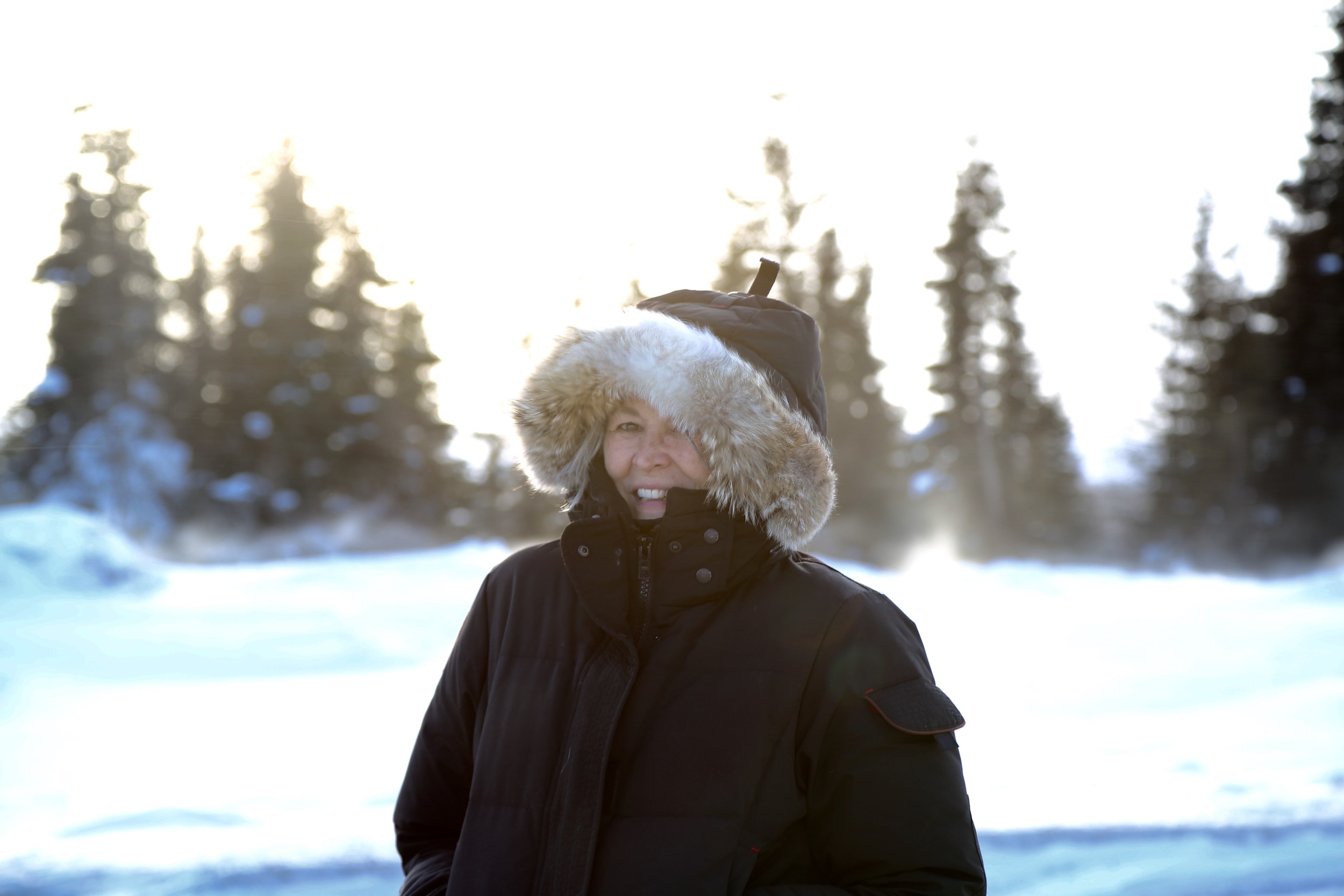
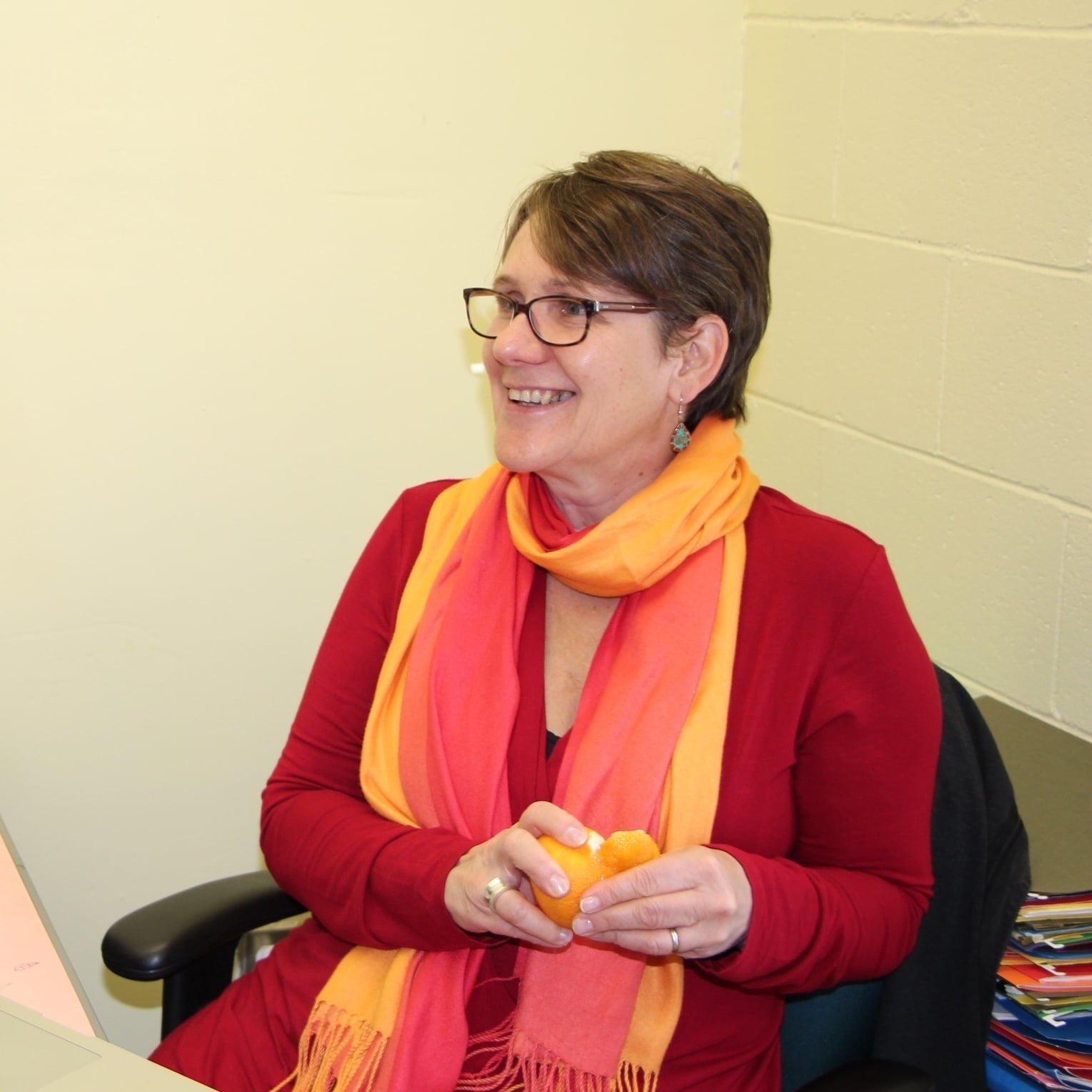
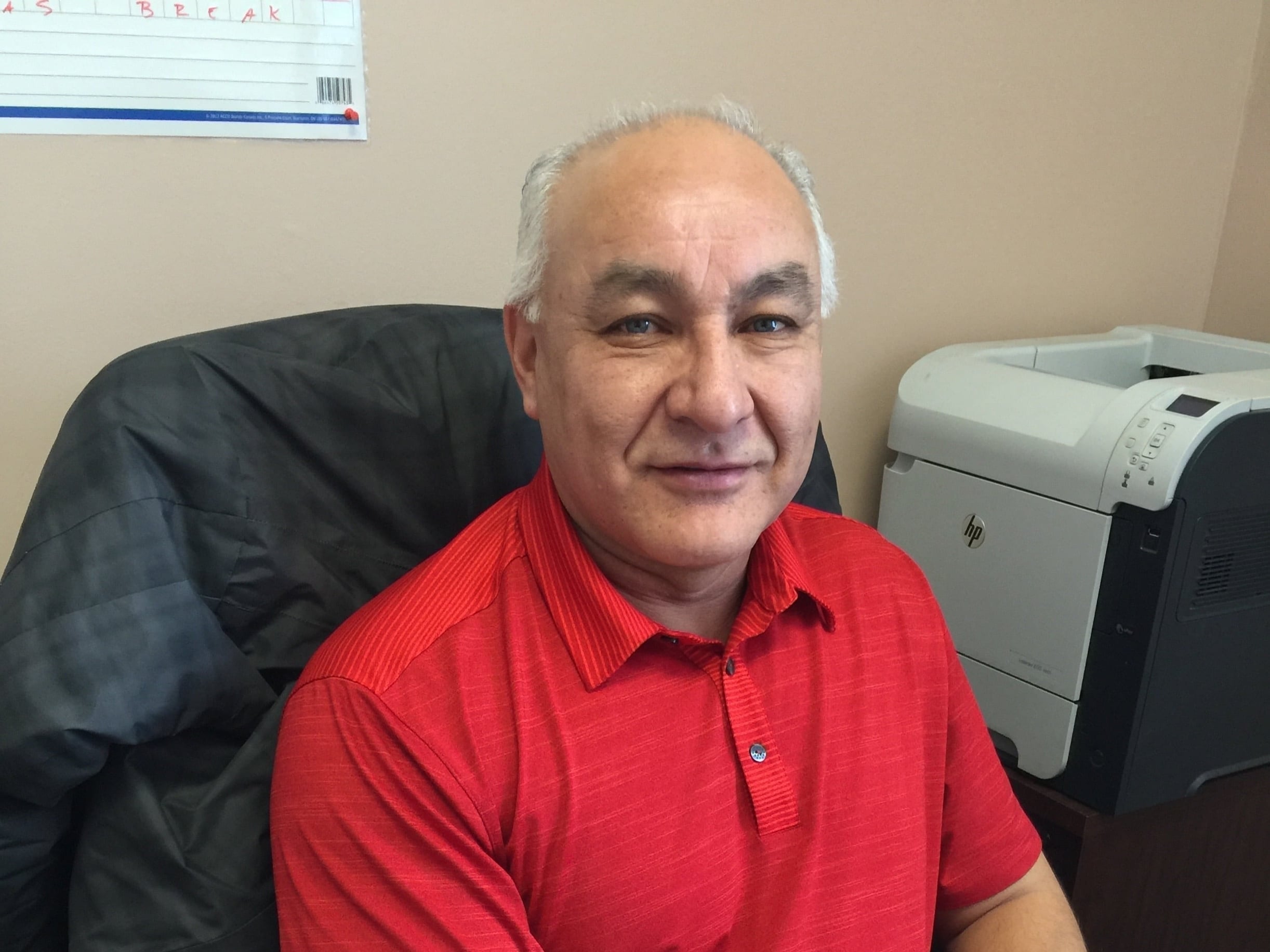
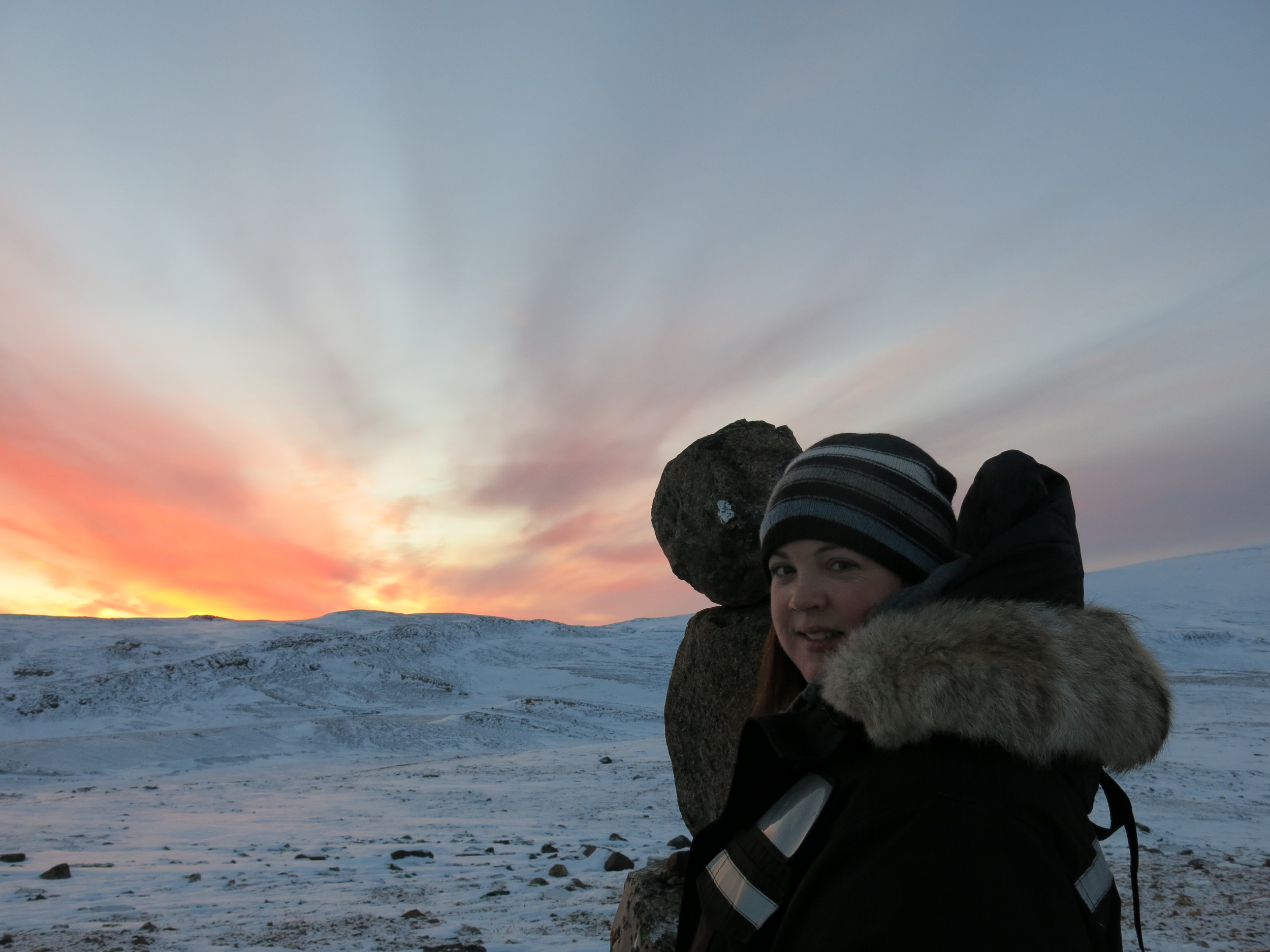
A Special Thank You to our Contributors
Ryan Koelwyn, the creator of this website and the digital graphics found on the site.
All photography provided by Celia Haig-Brown, Helen Haig-Brown, and Alesha Moffat.
In Memoriam Professor Wesley Cragg, co-applicant on Listening to the Land
It is with great sadness, I acknowledge the passing of Wes, my friend and colleague. Wes is the one who first brought me to Kawawachikamach now such a focal point in my life and work.
Wesley Cragg
Wes began work with the Naskapi Nation on ethical approaches to resource extraction at the request of Chief Phil Einish. As the Director of the Canadian Business Ethics Research Network, Wes committed to working with the community to create the best possible circumstances as open pit mines in the area were re-opening. With colleagues and students, he conducted a Knowledge Needs Assessment, an intensive community-based survey of households, documenting their perceived needs in the face of this change. From environmental impact to career opportunities, from culture and language protection to information about the companies and Nation’s plans, community members spoke out.
My role came when Wes approached me to work with the school, his logic being that if the needs were to be acted on in any comprehensive way, the students, as future community members, and the teachers as their guides, needed to be thinking about those knowledge needs now.
Wes was a man of supreme integrity. He was strong in his commitment to fairness and justice for all. In our travels to Schefferville and our stays at the McGill Subarctic Research Centre, we came to know one another, respect one another and, most important of all, have a lot of fun. He is sorely missed but his work carries on in this next iteration, this film, Listening to the Land.
